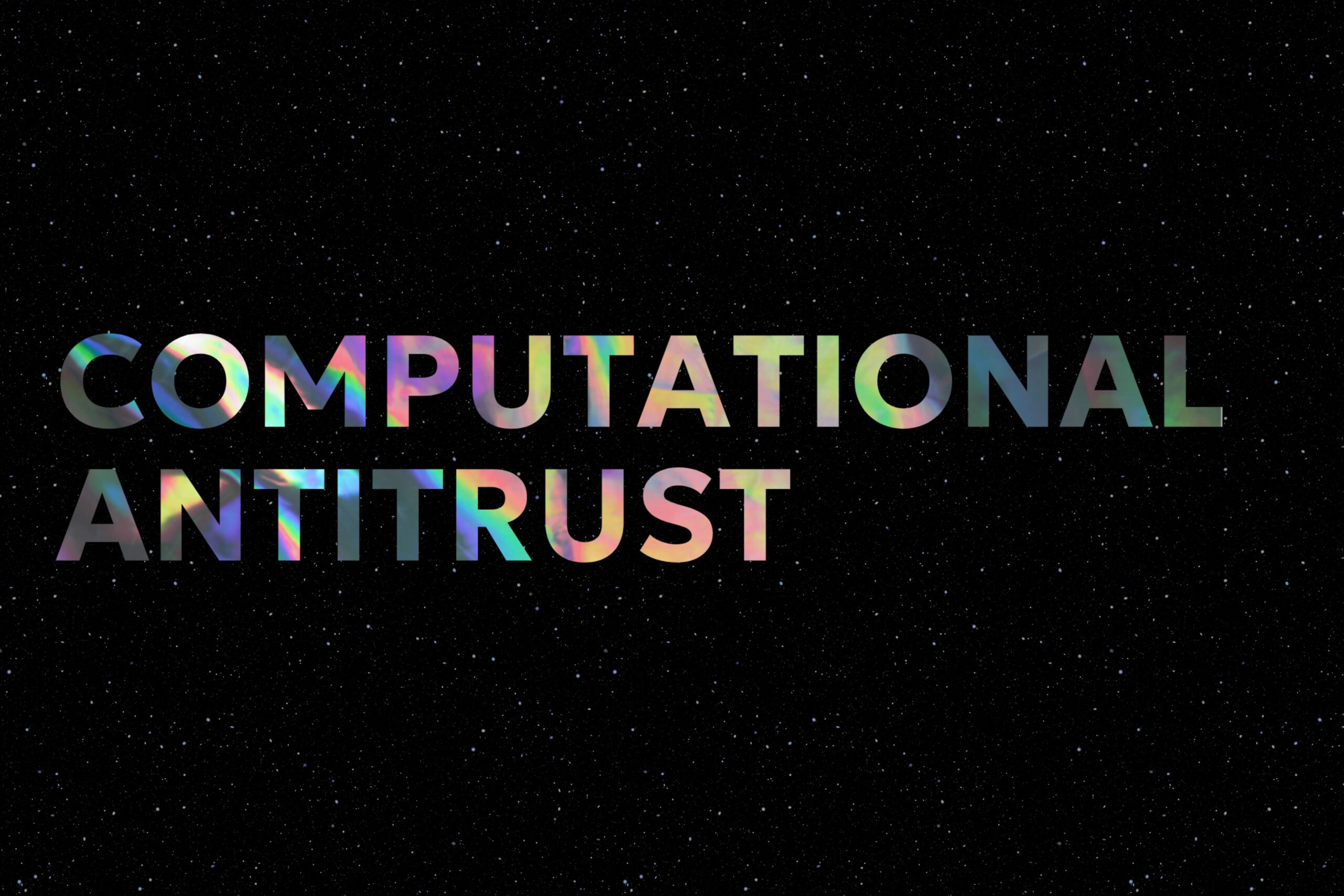Last year, I published a list of podcasts for antitrust law enthusiasts. I am pleased to be posting a new list, this time around, about newsletters. Not all of them are antitrust-centered, but they (all) contribute to keeping me up-to-date. In fact, I find that reading them (religiously) is a small commitment from which I derive a significant benefit. So, here we go.
***

Network Law Review
Huh? Network Law Review is not in a dominant position, so self-preferencing shouldn’t be an issue ;). I sent a newsletter (approximatively) once a month. In it, I feature guest articles written by some of the world’s most renowned antitrust professors (see here), reading suggestions (in which I feature the best of all the newsletters down below, see here), and more (such as this). OK, I feel guilty starting this way, so let’s move on.
How often? Monthly.
Subscribe here (free).
***

Ben Thompson’s Stratechery
Huh? “Stratechery provides analysis of the strategy and business side of technology and media, and the impact of technology on society. Weekly Articles are free, while three Daily Updates a week are for subscribers only. Recommended by The New York Times as “one of the most interesting sources of analysis on any subject”, Stratechery has subscribers from over 85 different countries, including executives in both technology and industries impacted by technology, venture capitalists and investors, and thousands of other people interested in understanding how and why the Internet is changing everything.”
How often? Daily.
My take: Where else could I (really) start this list? Ben Thompson’s Stratechery is not a newsletter… it’s a religion! If you are looking for the sharpest views on digital markets and tech companies, look no more. Plus, Stratechery is often discussing antitrust issues – always providing readers with new insights. In a nutshell, it’s AN ABSOLUTE MUST for anyone working in digital fields, or antitrust.
One example here + Subscribe here (free or premium at $12/month).
***

Benedict Evans’ newsletter
Huh? Ben Evans writes “a weekly email newsletter about what’s happening in tech that actually matters, and what it means.” He picks out “the news and ideas you don’t want to miss in all the noise, and give them context and analysis.”
How often? Daily.
My take: Ben Evans’ findings are the ones you are most susceptible to hear about in the field. That’s right. His newsletter often provides readers with some big data-type of analyses (including tables and graphics), which gives his readers a great sense of the big picture. Ben is the best macro-analyst around when it comes to tech markets.
One example here + Subscribe here (free or premium at $10/month).
***

MIT Tech Review: The Download & The Algorithm
Huh? The Download is “your daily dose of what’s up in emerging technology”, while The Algorithm is about “artificial intelligence, demystified”.
How often? Daily.
My take: When it comes to staying informed on the tech side, there is simply no better resource than the MIT Tech Review. The Download and The Algorithm (both) give me a great sense of what tech communities are working on and struggling with. I find it incredibly valuable for my research as I’d rather start from the bottom (devs and programmers) than the top (agencies and court decisions, no offense ;). Zero technical background is required, but these newsletters couldn’t create a better incentive to acquire (at least) some basics.
The Download: one example here + Subscribe here (free)
The Algorithm: one example here + Subscribe here ($50/year).
***

Agglomerations by Alec Stapp & Caleb Watney
Huh? With Agglomerations, the two authors are “writing about a broad set of technology and innovation policy issues, with a particular eye on the impacts and importance of agglomeration effects. Economists and urbanists talk a lot about the significance of clustered networks of individuals and firms working and living together in a shared environment and the ‘more than the sum of their parts’ effect that typically results. More people -> more ideas -> more innovation -> more growth. [They] see this take place across the US, within cutting-edge tech firms, and of course, [they] are benefiting from personal agglomeration effects as co-bloggers.”
How often? Weekly.
My take: If you are on Twitter, you know that following Alec Stapp is not an option. With his friend Caleb Watney (also to be followed on Twitter), they have recently created Agglomerations, a newsletter that deals with digital competition (for the most part). So… what will you find there? Articles discussing the nature and intensity of competition between big tech companies. Plus, Alec and Caleb are uncompromising when it comes to analyzing the logic and consistency of related-arguments. They are… digital markets fact-checkers.
One example here + Subscribe here (free).
***

Byrne Hobart’s The Diff
Huh? “The Diff is a daily newsletter covering inflection points in finance and technology. [Byrne] aims to answer a simple question: in a few centuries, when historians reach a consensus on what was happening today, what will they believe? Here’s what [he] believes: in 2020, our institutions are designed for a much simpler world with faster productivity growth. Outside of computers and communications, scientific progress has slowed abysmally since the mid-twentieth century. Meanwhile, in government, media, and education we’ve moved backwards; we’re less efficient and less effective than ever before, despite shinier tools and lavish spending. Pundits like to talk about how the pace of change has never been faster. They’re right, but in the wrong sense: the pace of fundamental change is slowing down, so unpredictability represents less progress and more chaos.”
How often? Daily.
My take: I’m not familiar with this newsletter for a long time, but Byrne Hobart has a strong economic (and financial) background that gives his insights a very special touch. Byrne’s analyses are often lengthy, but that’s what you need to leave the realm of Twitter-like comments. Overall, I’m very much impressed by the ease with which he draws macro lessons from micro-economic and technical analyses.
One example here + Subscribe here (free or premium at $20/month).
***

Albrecht & Hendrickson’s Economic Forces
Huh? Economic Forces is “a weekly newsletter by Brian Albrecht and Josh Hendrickson. We are both professors of economics with a passion for what used to be called “price theory”. This newsletter is our attempt to work through and clarify points in price theory.”
How often? Weekly.
My take: Economic Forces is a fairly new newsletter (created in November 2019) that I enjoy very much. Why is that? Well, Albrecht & Hendrickson show that price theory is not necessarily Chicago-obsessed and that it can be used in the context of dynamic analyses. The two authors are not discussing antitrust issues, but one will find numerous insights (provided one’s not dogmatic…) in it.
One example here + Subscribe here (free).
***

Pessimists Archive
Huh? The Pessimists Archive is “a history of why we resist new things”. Here’s what they say: “Want to feel more optimistic about the future? Want to feel more open-minded about new things? Then join us for a trip back to the pessimists of the past. We explore the wild and surprising ways that people resisted change — and what it can teach us about resiliency today. It’s called Pessimists Archive, but it’s all about optimism!”.
How often? Weekly.
My take: As we know, being a skeptic is a lot cooler than being an optimist (or even a realist). Pessimists Archive turns the thing around, mocking intelligently the pessimists whose predictions now seem… quite ridiculous. What I like the most: one hears the same predictions about many of today’s technologies and trends. Steven Pinker called it “invaluable in putting today’s tech moral panics in historical perspective”. I couldn’t agree more!
One example here + Subscribe here (free).
***

CPI’s newsletter
Huh? “Competition Policy International (CPI) is an independent knowledge-sharing organization focused on the diffusion of the most relevant antitrust information and content worldwide. We recognize the importance of intellectually sound and balanced debates and aim to promote them across the world in the most innovative ways. Our mission is to create a truly global community of antitrust experts to facilitate discussion and exchange of ideas at the highest level possible. Created and managed by leaders in the competition policy community, CPI delivers timely commentary and analysis on antitrust and global competition policy matters through a variety of media and applications.” True to this philosophy, CPI’s daily newsletter sends over “the most relevant news and updates on antitrust from around the world.”
How often? Daily.
My take: CPI newsletter is quite valuable. Every morning, it features the most relevant news (cases, investigations, official speeches…), one freshly-published academic article, and an overview of the press. I see no reason why someone working in the field of antitrust wouldn’t subscribe to it.
One example here + Subscribe here (free).
***

Antitrust Digest by Pedro Caro de Sousa (edit 2022: Pedro stopped the newsletter)
Huh? This newsletter “is the result of the pro-bono, extracurricular efforts of a single individual who provides summaries and discussions of recent academic papers and competition cases, usually structured around long-term topics (mergers, private enforcement, the digital economy, etc.). The goal is to bridge the gap between academic work and policy / private practice, a bridge the newsletter’s author crossed many times. As a bonus, the content of every newsletter is available online at http://antitrustdigest.net.”
How often? Weekly.
My take: Not only Pedro’s newsletter is the only one to review academic papers (and reports) in the field of antitrust law (generally three per e-mail), but he is also providing his readers with incredibly thoughtful comments that always challenge common assumptions. Mostly relevant to academic communities, regulators, and policy-makers, I couldn’t encourage you enough to subscribe if you are occupying one of these related-professions.
One example here + Subscribe (free) by sending him an e-mail at antitrustdigest@gmail.com
******
Thibault Schrepel
@ProfSchrepel








